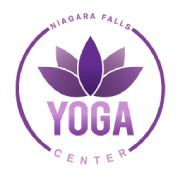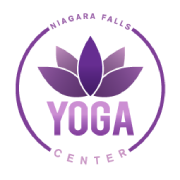Fees & FAQ
Everything You Need To Learn About Our Yoga Classes
At Niagara Falls Yoga Center, we provide you with detailed information regarding the rates of our yoga sessions. We also answered commonly asked questions about our services and classes. For aspiring yoga practitioners, our center is always open to new students.
Class Prices
-
5-Class Package – 75.00 + HST
-
10-Class Package – $145.00 + HST
-
20-Class Package – $280.00 + HST
-
3-Month Unlimited Session – $348.00 + HST
-
6-Month Unlimited Session – 648.00 + HST
-
Walk-In Fee – $20 + HST (walk-ins unavailable at this time)
Private Sessions
One-on-one yoga therapy sessions are also available. Each meeting costs $75.00 plus HST or $210.00 for three sessions.
Class Expiration
From the start date, here are the expiration dates for the following class packages:
-
5 classes – 6 weeks
-
10 class – 12 weeks
-
20 class – 24 weeks
Policies
We do not provide refunds and allow class transfers or exchanges. Expiration dates are firm. Any and all participants of Niagara Falls Yoga Center must be 18 years or older and of sound mind and body to participate in classes.
Frequently Asked Questions
What should I bring?
Your yoga mat and a towel. If you do not have your own we do have some at the center for use but it is highly recommended you eventually have your own.
What are the health benefits of practicing Yoga Asanas?
These dynamic forms of postures act as bridges to unite the body with the mind and the mind with the soul. Asanas help to keep the body strong, flexible, and relaxed. This practice will help you:
-
Strengthen the Nervous System
-
Increase Fresh Blood Supply to Vital Organs
-
Tone Muscular Tissue
-
Improve Circulation
-
Lift Mood
-
Relieve Joint Pain
-
Increase Spinal Flexibility
The benefits of asana practice can be discussed and explained forever. It is a beautiful and endless topic. Please always remember to practice with joyfulness and integrity. Every time you step onto your mat, make the decision to enjoy where you are, and stay in the present moment; it truly is a gift.
How can Pranayama create changes in my body?
Pranayama is an art and has techniques to make the respiratory organs move and expand intentionally, rhythmically, and intensively. It consists of long, sustained, and subtle flow of inhalation (puraka), exhalation (rechaka), and retention of breath (kumbhaka).
The inhalation stimulates the system, and the exhalation throws out vitiated air and toxins. Breath retention distributes the energy throughout the body.
What does “AUM” mean and why is it chanted before the start of a Yoga class?
“AUM” is a sacred sound that is considered the greatest of all mantras. Sound is a vibration, which is the source of all creation. Therefore, when we speak, sing, or make specific sounds, we are in one type of a creation process. Different sounds carry different vibrations, creating different energies.
The word “AUM” is said to be the sound that contains all other sounds, and to be of perfect vibration. Chanting this word before asana practice will calm the mind, create peaceful and sacred space which is preferable before beginning practice.
I am overweight. Can I still practice Yoga?
Yes. If you are overweight you can and should practice yoga. This discipline is not about being overweight or thin. Asana practice helps to increase range of motion of joints and can help correct postural problems that may have resulted from weight gain. Reengaging in physical activity through asana practice can bring a renewed sense of control over one’s life and your relationship with your body for the better.
What are Asanas?
Asanas are postures that produce mental equilibrium, steadiness, health, and lightness of limb. These are the positioning of the body as a whole with the involvement of the mind and soul. Asanas have two facets, pose, and repose. Pose is the artistic assumption of the position. Reposing in the pose means finding the perfection of a pose and maintaining it, reflecting in it with penetration of the intelligence and with dedication.
How can specific Asanas help me?
These calm the mind and body while others create more energy in the body. Asanas assist us to constantly refine our process of inner perception. Regular practice can help balance and bring equilibrium to the entire system. This is helpful, especially for those who work in a profession where the body is constantly under strain or placed in a compromising position.
What is Pranayama?
Pranayama is energy and control of breathing. All vibrating energies such as heat, light, gravity, magnetism, and electricity are also prana. It is the energy that creates, protects, and destroys. It also permeates the universe at all levels of energy, such as:
-
Physical
-
Mental
-
Intellectual
-
Emotion
-
Spiritual
-
Cosmic
How do Asanas differ from physical exercise?
Asanas are practiced with mental, emotional, and spiritual awareness to improve strength, vitality, flexibility, and longevity to the whole body. This includes all the organs and systems. Physical fitness is just one by-product of yoga practice.
Physical exercise is mainly focused on physical fitness and development. In some Asanas, blood pressure and heart rate decrease. In physical exercise, it is increased. Asanas use the practice of controlled breathing “pranayama” whereas physical exercise may be done quickly with harder and heavier breathing, forcing the respiratory system to work harder.
”Yogasanas exercise the entire body and revitalize all the physiological systems, resulting in a sound mind in a sound body, as each asana cultivates the body and mind evenly. Yogasanas and Pranayama have stood the test of time for centuries and are helpful for all needs of men and women in their pursuit of perfect health and supreme happiness”
- Geeta Iyengar, author of Yoga: A Gem for Women
Am I too old to start practicing Yoga?
Asanas can be practiced at any age. There are specific methods and techniques used within practice with respect to one’s age and capacity. As we age, we may become more disassociated from our bodies and bodily experience. When we reconnect back to our bodies through asana practice, we reattach ourselves to our bodies.
This allows us to become more aware within oneself, making it possible to bring back our natural instincts, intuitions, feelings and insights. We need to be guided back to the undeniable wisdom of our body.
I’m not flexible. Can I still practice Yoga?
If you are not flexible, it is all the more reason to start practicing Yoga Asanas. It helps us reconnect with our bodies to improve our flexibility, stamina, and health. Regardless of the situation or form we find ourselves in, we can explore both familiar and unfamiliar postures to expand our consciousness and reconnect with ourselves.
Drop Us a Line
To learn more about our fees or if you have more questions about yoga, reach out to us today. We’ll be glad to address your concerns.

